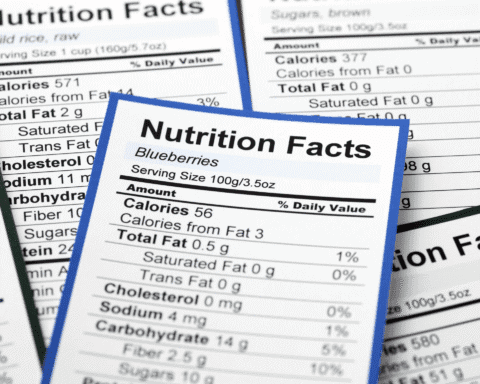Psyllium husk, derived from the seeds of the Plantago ovata plant, has gained attention for its various health benefits. Its high fiber content makes it an efficient natural aid for digestive health, offering relief from constipation and supporting regularity. Incorporating psyllium husk into a daily regimen can also assist in maintaining healthy cholesterol levels and supporting heart health.

In addition to its benefits for gut health, psyllium plays a significant role in weight management. It can promote a sense of fullness, which may lead to reduced calorie intake. This property makes it a practical addition to a balanced diet for those seeking natural ways to support their weight loss goals.
Psyllium husk is versatile and can be easily included in various recipes or taken as a supplement. Its ability to bind with water and form a gel-like substance makes it a popular choice for those looking to improve their overall digestive function and health.
Understanding Psyllium Husk
Psyllium husk originates from the seeds of the Plantago ovata plant, valued for its high soluble fiber content. It offers various health benefits and is available in several forms like powder and capsules, making it easy to include in daily diets.
Origin and Cultivation
Psyllium comes from the seeds of the Plantago ovata plant, which thrives in regions like India, Pakistan, and Iran. India stands out as the primary producer, given its conducive climate for cultivation. This annual herb reaches between 30 to 50 centimeters in height, bearing flowers that mature into seeds.
The seeds undergo a meticulous process to separate the husk, rich in fiber. These are sun-dried and cleaned before being processed for commercial use. Sustainable cultivation practices are crucial to maintaining both quality and yield, ensuring a consistent supply to meet global demand.
Nutritional Profile
Each tablespoon of psyllium husk is packed with about 5 grams of dietary fiber. It comprises approximately 70% soluble fiber, which transforms into a gel-like consistency when mixed with water. This property aids in promoting smooth digestion and supporting healthy cholesterol levels.
Psyllium is low in calories, containing minimal fat and protein, making it an excellent choice for those seeking to increase fiber intake without adding extra calories. Its balanced properties harmonize with a balanced diet, and it serves as a valuable ingredient in gluten-free recipes.
Forms and Varieties
Psyllium husk is typically available in whole form, husk powder, and capsules. The whole form retains the natural structure, ideal for culinary uses such as baking. Powdered psyllium is versatile, mixing well into liquids and smoothies for effortless consumption.
Capsules offer a convenient option for those who prefer supplements. Although taste and texture may vary slightly between these forms, they all deliver similar benefits. When choosing a form, considering convenience, dietary habits, and specific health goals can guide users to the best selection for their needs.
Health Benefits and Uses
Psyllium is valued for its diverse applications in promoting health, particularly in digestion, weight management, and regulating blood sugar and cholesterol. Its role as a prebiotic also supports overall gut health.
Dietary Fiber and Digestive Health
Psyllium husk is a rich source of soluble fiber. This fiber absorbs water and swells, forming a gel-like mass that aids in promoting healthy and regular BMs. This bulking effect can reduce constipation and improve overall gut function.
Regular intake may protect against IBS and support general digestive wellness. It softens stools, making them easier to pass, thus lowering strain-related issues such as hemorrhoids.
Weight Management
Incorporating psyllium into a diet can aid in managing weight due to its ability to create a sense of fullness. When consumed before meals, psyllium can curb appetite by slowing stomach emptying, leading to reduced calorie intake.
This makes it a useful tool for individuals trying to control their weight. The gel-like fiber increases satiety, making it easier to keep portions in check.
Blood Sugar and Cholesterol Regulation
Psyllium husk plays a significant role in maintaining healthy blood sugar levels. It slows carbohydrate digestion, preventing post-meal blood sugar spikes.
In addition, psyllium’s ability to bind to cholesterol helps reduce levels of LDL cholesterol in the blood, which is beneficial for heart health. This action makes psyllium a supportive supplement for those managing cholesterol.
Prebiotic Effects
The prebiotic properties of psyllium promote the growth of beneficial gut bacteria. This fiber encourages a healthy balance of microflora in the intestines, boosting overall gut health.
Its prebiotic effect supports the microbiome, enhancing immune function and potentially reducing inflammation in the digestive tract. Consuming psyllium regularly strengthens the bacteria that benefit from dietary fiber, indirectly supporting the body’s defenses.
Potential Risks and Interactions

Psyllium husk is generally safe for most people, but it’s important to be aware of its potential risks and interactions. These can include allergic reactions, interference with certain medications, and the consequences of improper dosage.
Allergies and Side Effects
Allergic reactions to psyllium are rare but can occur in some individuals. Symptoms may include itching, rash, or trouble breathing. Those who have allergies to similar substances should consult a healthcare professional before use.
Common side effects include bloating and gas, especially when first adding psyllium to the diet. To minimize these effects, it is recommended to start with a small dosage and gradually increase it.
Medication Interference
Psyllium husk can affect the absorption of certain medications due to its gel-like properties when mixed with liquid. It may reduce the effectiveness of medications such as antidepressants and heart drugs.
To avoid this, it’s advisable to take medications at least two hours before or after consuming psyllium. This ensures that the psyllium doesn’t interfere with the medication’s effectiveness.
Recommended Dosages and Overuse
For adults, the typical recommended dosage of psyllium is about 5-10 grams taken with ample water. Make sure to follow dosage instructions carefully to avoid potential risks.
Overuse can lead to digestive issues like constipation or diarrhea. In severe cases, it may also cause intestinal blockages. Ensuring adequate fluid intake helps prevent such complications associated with excessive usage.







